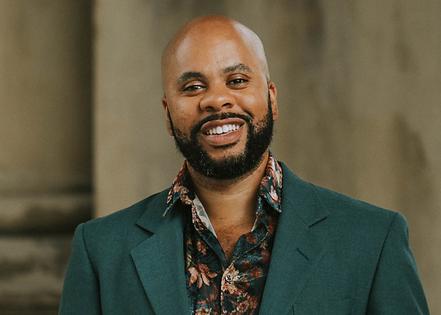Asking Eric: Wife’s response to husband’s accident threatens marriage
Dear Eric: Almost 10 years ago, my husband had a life-changing car accident. It left him with neurological issues, some of which still linger to this day. He was unable to convey to me the depths of his emotional pain and frustrations due to the neurological trauma, and I, rather than showing empathy, became a nagging, frustrated harpy, bombarding him with questions like why he hadn't unloaded the dishwasher and why he was always sleeping when I got home from work.
Through several honest, heart-to-heart discussions in the past three years, my husband has revealed his (deserved) hurt and disappointment in my treatment of him in the year post-accident. He's stated that he's not sure if he could ever forgive me.
I've apologized to him countless times for my atrocious behavior and have had to dig deeply to face my own insecurities and inner demons. Although he recognizes that I'm trying to be a better person, he's stated that "people don't change" and is wary that I'll be kinder to him going forward.
My husband has asked that while we sort things out, we continue our daily life of work, family and simple pleasures, and that we both try to not make things awkward between us. He said he wasn’t sure if he loved me, but he will always have love for me. I feel hopeless that he will stay in our marriage. He refuses to seek any counseling but I'm considering going for myself. Could you please provide another point of view on this situation?
– At A Crossroads
Dear Crossroads: Counseling for yourself is the right next step. It will be helpful to talk with someone outside of your marriage about the hopelessness you’re feeling, as well as the guilt you’ve expressed about your past behavior.
A therapist can also help you forgive yourself for the unintended hurt, which is just as important as your husband’s forgiveness. People do change, but the past doesn’t. Changing our relationship to the past, however, is a powerful tool on the path to healing.
Unfortunately, I don’t think that your husband’s plan is the best course of action. He’s dealing with the trauma from the accident as well as the trauma of feeling neglected by a loved one. That’s a lot to handle and he should avail himself of support. Furthermore, whatever the future holds for your marriage, you’ll need to be able to communicate with each other. It doesn’t sound like that’s fully possible right now. If he’s not willing to go to counseling with you, see if he’ll consider talking to someone on his own.
Dear Eric: My girlfriend and I have been together for some time. She has a wide circle of friends, some of the closer ones we see regularly, and I always enjoy myself. But several times a year we're invited to large parties, and I'm invariably uncomfortable there. I simply don't find them conducive to easy conversation, so I mostly stick to myself, sometimes making a discreet exit and walking around the neighborhood. I recently fessed up to my girlfriend, and she seemed very disappointed. How should I handle this?
– Party Pooper
Dear Party: Your girlfriend may be disappointed that you don’t enjoy the things she enjoys, but I hope she’ll also realize that you made the healthy choice to talk about your needs instead of wallowing in discomfort. While she may envision you joining her wide circle of friends, she also knows you and, one presumes, gets that you’re more introverted.
Assure her that you’re perfectly happy sitting some gatherings out. If there are some gatherings that she would rather not attend solo, talk it through in advance and see if you can compromise. Perhaps you make small talk for half an hour and then give her a kiss and tell her you’ll see her at home. Knowing what the plan is beforehand will help you both manage expectations.
Dear Eric: I enjoy your advice newspaper column a lot. Thank you. I’m writing to comment on the common wording people, including you, use when someone feels hurt by something someone says or does. As a psychotherapist, my perspective is that it is codependent to believe that someone “hurt your feelings.” I believe that it is more accurate and less critical to respond with, “I felt hurt by what you said / did.” Part of the therapy world is learning about communicating with “I” statements vs “you” statements. “I” statements are usually better received than “you” statements and tend to make the receiver feel less criticized and therefore less defensive in response.
– I Statements
Dear I Statements: Thank you so much for pointing this out. It’s so important and yet sometimes I do forget and reference “you” statements. I really appreciate the reminder.
(Send questions to R. Eric Thomas at eric@askingeric.com or P.O. Box 22474, Philadelphia, PA 19110. Follow him on Instagram and sign up for his weekly newsletter at rericthomas.com.)
©2024 Tribune Content Agency, LLC.


















Comments